The characteristics of the story of the origin of coffee bean industry in Rwanda
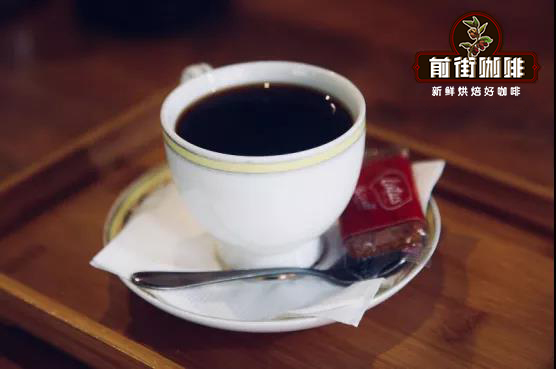
Professional coffee knowledge exchange More coffee bean information Please pay attention to coffee workshop (Weixin Official Accounts cafe_style)
I don't know if you know Rwanda, which is a landlocked country in Africa. Coffee cultivation is one of the economic sources of this country, so what is the coffee flavor of the country? Front Street Coffee will share Rwandan coffee.
Rwanda Coffee Development
Rwanda has been growing coffee since colonial times. Although coffee is the main crop, the quality of coffee produced in Rwanda is not outstanding. The status of coffee in the world is low and few people care about it. Front Street Coffee found that Brazil, which also experienced colonial rule, once produced coffee beans that were not heavy in weight, resulting in a reputation for poor coffee quality for some time.
Most coffee varieties grown in Rwanda are bourbon species. There are many mountains and plateaus throughout Rwanda. Most coffee trees are planted on the mountains between 1700 and 2000 meters above sea level. It is known as "the country of thousands of hills".
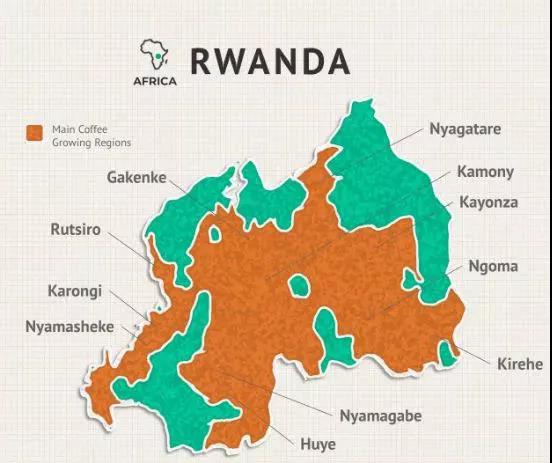
Rwanda's National Agricultural Export Development Agency (NAEB) said Rwanda's coffee strategy is to "position Rwanda as a fine coffee producer" and that the government will focus on improving production and processing measures in order to enable the coffee industry to better contribute to the country's development and prosperity, so as to increase coffee exports to drive the country's economic development.
Rwanda owes much of its prosperity to government efforts and support from foreign NGOs and private groups. Because in 1994, Rwanda had a genocide, and the population was decimated, and the coffee industry stagnated.
By 1995, Rwanda was slowly returning to stability. In 2000, PEARL and SPREAD, funded by the United States Agency for International Development (USAID), were established to support the reconstruction of agriculture in Rwanda and promote the improvement of Rwandan coffee quality to help farmers earn better incomes.
Front Street Coffee is also seeing the rapid development and stable quality of Rwandan coffee. Recently, several batches of Rwandan coffee beans from different regions have been collected and found to be different from other African coffee beans.
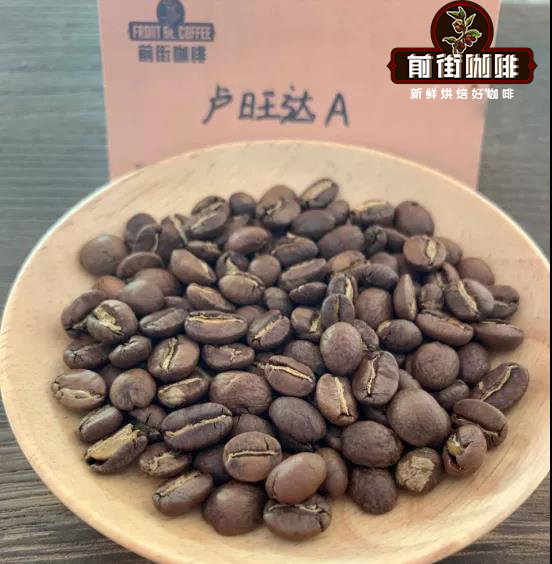
Rwanda coffee-producing region
Rwanda's land area is only four times that of Guangzhou. Its small land area and coffee planting altitude are similar, which also causes coffee beans planted in different areas to have little difference in flavor.
Rwanda Arabica coffee bean production is mainly distributed in the south and west, the Huye Mountain area in the south, Nyamagabe area due to the higher altitude, coffee beans have some floral and citrus flavor, while the Nyamasheke area on the Kivu Lake in the west is rich in rich taste, aromatic and juicy quality coffee.
Although there is little difference in flavor between producing areas, there are still some differences under fine taste. People often ask how to distinguish the coffee in the front street. They always feel that the flavor is very metaphysical. In fact, the coffee in the front street has undergone a lot of flavor cognitive training to distinguish the coffee flavor in different producing areas. This takes time, energy and persistence.
Front Street Coffee Rwanda Gesek
Region: Nyamasheke region
Altitude: 1500m
Breed: Bourbon
Treatment method: washing treatment
Rwandan bourbon coffee beans
More than 90% of Rwandan coffee varieties are early introduced bourbon varieties, as well as bourbon family hybrids, which are resistant to natural disasters. Bourbon coffee was originally popular throughout Latin America, but due to poor disease resistance and less cultivation in countries, several Latin American bourbon coffee beans currently collected by Front Street Coffee include Brazilian red bourbon, Brazilian yellow bourbon and Colombia pink bourbon. In contrast, Rwandan bourbons still enjoy an advantage, which is one reason Front Street Coffee picks Rwandan beans.
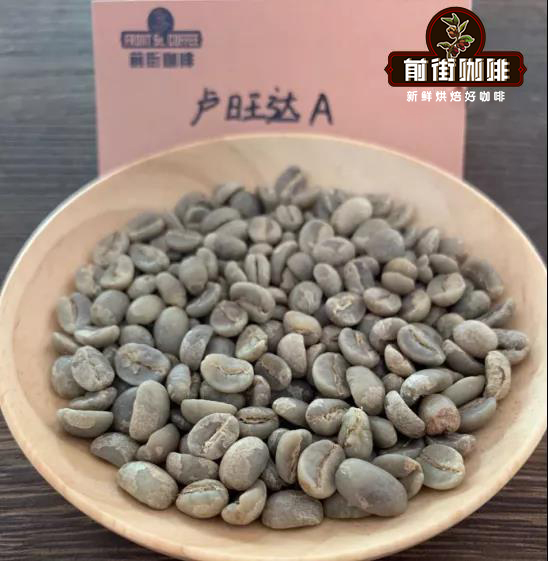
Rwandan coffee processing
In 2000, in Rwanda, which was emerging from civil chaos, USAID funded PEARL and SPREAD coffee development projects to support Rwanda's reconstruction. Following the implementation of the plan, Rwanda built 46 coffee washing plants, allowing Rwanda's economy to grow significantly on the back of strong coffee exports.
Therefore, Rwandan coffee beans are mainly washed. Mature coffee fruits are hand-picked, peel and pulp are removed, washed and fermented for 12-18 hours, pectin is cleaned, and finally dried to a moisture content below 14%.
Front Street Coffee believes that Rwandan coffee beans at the beginning of development, determined to wash as the main processing method, is able to clearly highlight the coffee flavor choice. Because washing is the best way to reflect the essential flavor of coffee, Qianjie Coffee will first recommend washed coffee beans to guests when recommending a coffee producing area, so as to clearly understand the flavor characteristics of the producing area.
Front Street Coffee Roasting Advice
Due to the fresh acidity of Rwandan coffee beans, Front Street Coffee recommends a medium light roast to accentuate this flavor.
Bean temperature: 175℃
Yellowing point: 5 55", 152.1℃
First explosion point: 9 20", 183℃
Development after explosion: 2 '00 ", 194.4℃
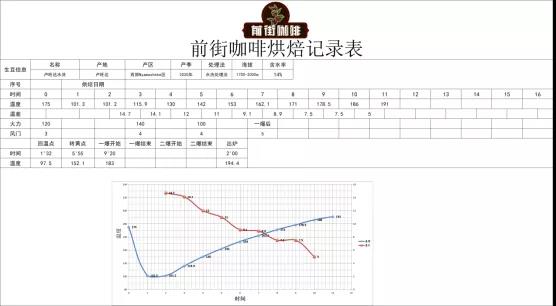
When tested in the Front Street Coffee Cup, this Rwandan washed coffee bean has a distinct floral and berry aroma on the dry nose, a honey sweet and nutty aroma on the wet nose, and a bright sour, citrus, berry, nutty, caramel sweet finish on the overall flavor.
Front Street Coffee Brewing Advice
Coffee powder: 15g
Powder water ratio: 1:15
Water temperature: 90℃
Grinding degree: fine grinding (80% pass rate of No.20 standard sieve)
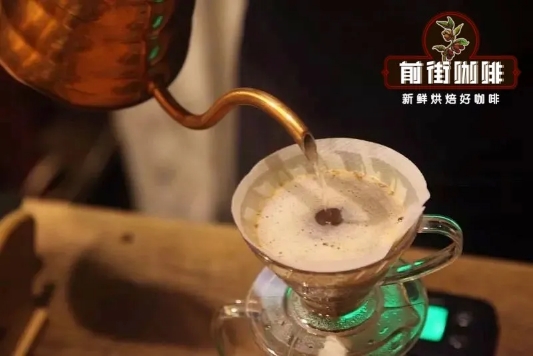
Qianjie coffee uses staged extraction, steams with 30g water for 30 seconds, and then injects water in a circle to 125g. When the water level drops, the water injection will continue to 225g. When the water level drops, the filter cup will be removed.(Steaming starts) The extraction time is 200 ".
Flavor description
Floral and berry aromas with distinct citrus, berry and plum notes on the palate, nutty in the middle and caramel sweetness in the finish.
More fine coffee beans, please add private WeChat Qianjie Coffee, WeChat: kaixinguoguo0925
Important Notice :
前街咖啡 FrontStreet Coffee has moved to new addredd:
FrontStreet Coffee Address: 315,Donghua East Road,GuangZhou
Tel:020 38364473
- Prev
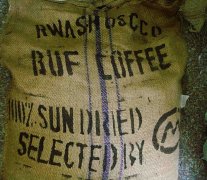
Rwanda Coffee drinking French Coffee Manor-Buf Caf é small Farm Coffee cultivation
Professional barista exchanges please pay attention to the coffee workshop (Wechat official account cafe_style) Rwanda is located in the heart of the interior of Africa, its mountain terrain is fertile land, as well as the ancient traditional bourbon species, indicating that the natural environment needed to grow quality coffee beans can be found everywhere in Rwanda. Coffee was introduced to Rwanda by German missionaries in 1904 and was introduced in 1930 because of coffee.
- Next
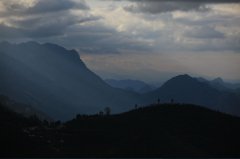
Finca La Providencia, Dianyi Manor, Vicki Nan Fruit producing area, Guatemala single Coffee
For the exchange of professional baristas, please follow the coffee workshop (Wechat official account cafe_style). Finca La Providencia is located in San Pedro Nita (San Pedro Necta) in the Vivetna fruit (Huehuetenango) region of Guatemala. Tianyi Manor is a large coffee plantation with 64 hectares, located in the Cuchumatanes Mountains, above sea level.
Related
- Detailed explanation of Jadeite planting Land in Panamanian Jadeite Manor introduction to the grading system of Jadeite competitive bidding, Red bid, Green bid and Rose Summer
- Story of Coffee planting in Brenka region of Costa Rica Stonehenge Manor anaerobic heavy honey treatment of flavor mouth
- What's on the barrel of Blue Mountain Coffee beans?
- Can American coffee also pull flowers? How to use hot American style to pull out a good-looking pattern?
- Can you make a cold extract with coffee beans? What is the right proportion for cold-extracted coffee formula?
- Indonesian PWN Gold Mandrine Coffee Origin Features Flavor How to Chong? Mandolin coffee is American.
- A brief introduction to the flavor characteristics of Brazilian yellow bourbon coffee beans
- What is the effect of different water quality on the flavor of cold-extracted coffee? What kind of water is best for brewing coffee?
- Why do you think of Rose Summer whenever you mention Panamanian coffee?
- Introduction to the characteristics of authentic blue mountain coffee bean producing areas? What is the CIB Coffee Authority in Jamaica?

